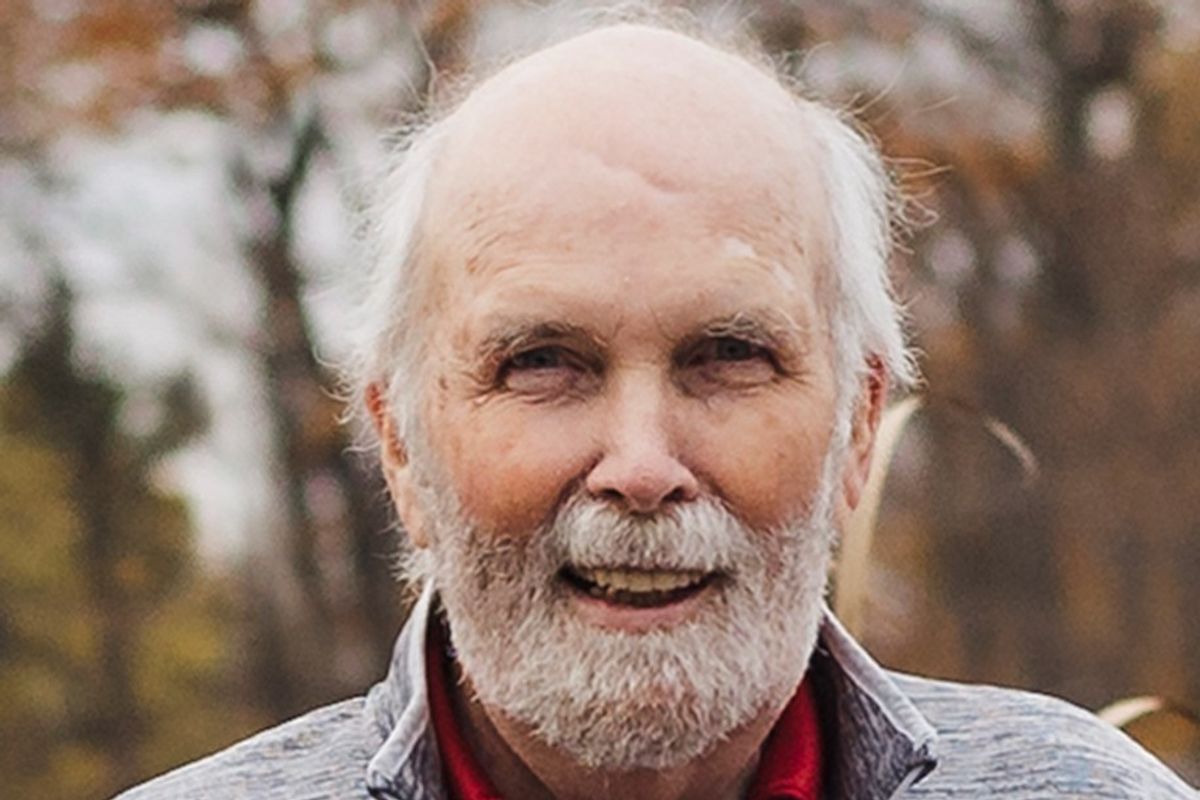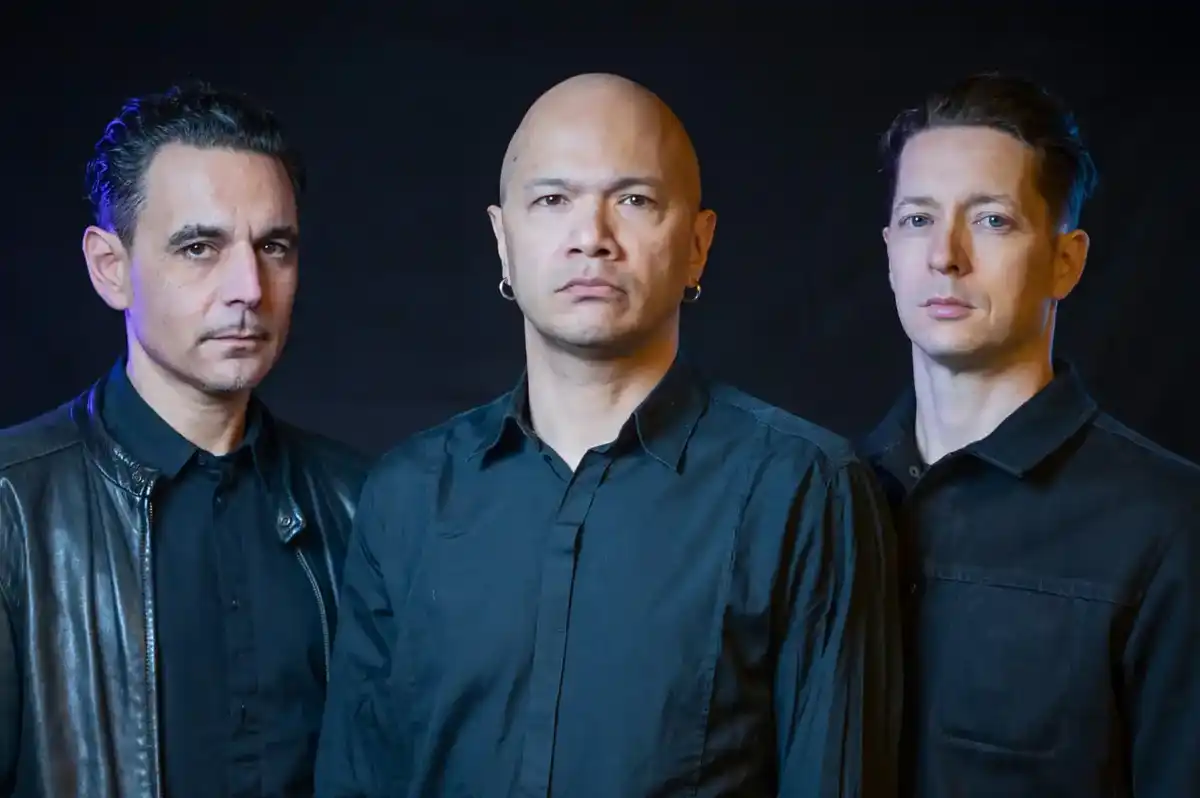Obituaries: Paul Cockburn, John McBride, David Soul & More
This week, we acknowledge the passing of two Canadian music industry veterans, a star TV actor and singer, a key Kate Bush collaborator, and more.

John McBride
Paul Joseph Cockburn, a Canadian rock guitarist and songwriter whose bands included Dillinger, The Hunt and Blushing Brides, died on Dec. 7, at age 71.
Cockburn grew up in Toronto and Orillia, and his father, Ray Cockburn, owned and operated The Pav (Club Pavalon) dance hall in Orillia, and subsequently The Kee to Bala. As his official obituary notes, “both venues hosted almost every Canadian rock band of the era, exposing Paul to some of his early experiences in music. He toured throughout North America, in the 1970’s & 80’s, with progressive rock bands Dillinger and The Hunt, followed by Blushing Brides and The Joneses."
The Canadian Pop Encyclopedia states that "During the early '70's, Daffodil recording act Dillinger released two obscure progressive rock albums to some critical note, but poor sales. A new rhythm section and Gerry Mosby then joined members Jacques Harrison and Paul Cockburn in a new, tougher, hard rock line-up. This was christened by manager Cliff Hunt as The Hunt during a late night session for the 3rd Dillinger record at Phase One Studio in Toronto with producer George Semkiw."
"Their eponymous 1977 debut on GRT Records was well received — especially in San Antonio, Texas, but the album fell on deaf ears in Canada. By 1978, Mosby, Harrison and Cockburn had bailed."
Veteran Canadian music publisher and record label head Frank Davies offered this tribute to Billboard Canada FYI: "Paul Cockburn was a key member of two bands I signed to my Daffodil label in the 1970s — first Dillinger and then The Hunt, some of whose members morphed out of Dillinger.
"Paul was a talented musician. While a member of both bands, I remember how focused he was and sure about what he wanted to hear in the studio and in live performance, not just from his own playing but very much the overall band's sound. He was open to all sorts of music and took those influences into what he wrote and played which always brought an interesting colour to the final arrangements of the band's songs which he cowrote."
"I spent a lot of time with Paul particularly while producing the second Dillinger album, Don't Lie To The Band, in Flint, Michigan. The band's sound and material shifted to a much more progressive rock style for this album, no doubt influenced heavily by Paul's rock guitar leanings and strengths.
"The band split up a short while later and were reborn again as The Hunt with just Paul and Jacques Harrison remaining from Dillinger. The Hunt were now fully hard rock focused. Like other Canadian hard rock groups of the era they developed a strong following in the midwest and in Texas particularly, much more so than in Canada. Paul left the band after its first album."
"Paul was such a talented, positive and friendly person. We always got on so well though unfortunately I lost touch with him many years ago and was so saddened to hear of his passing. My thoughts go out to his wife and family and brother Ray."
Toronto musician/songwriter Gerry Mosby recalled his musical history with Cockburn to Billboard Canada FYI, noting that "I first saw Paul onstage at The Gasworks in Toronto, when I was in Bond and he was in Dillinger. I next saw him — then actually met him — when Dillinger opened for Bond at the Cochrane Arena in ’76. His band and mine were both managed by Franklin House (Barry Cobus and Cliff Hunt)."
"I was later invited to the studio where Dillinger was recording, and it turns out they needed a fifth member to help decide on a new name for the band. Shortlisted were the names One Way and The Hunt. I voted for the latter, the tie was broken, and we officially became The Hunt."
A keyboardist in Bond, Mosby switched to bass in The Hunt. He tells Billboard Canada that "Paul Cockburn and I hit it off instantly and, before long, he and I rented a big house, up on Old Weston Road, then The Hunt toured throughout Ontario and Quebec, to appreciative audiences. Even when I left The Hunt after a year, Paul and I still called that our shared abode. Being part Italian, Paul charmed all of our neighbours on the street, and soon everybody knew about the two nice rock warriors in their midst."
"Paul and I stayed in touch for years, but lost contact with each other when he joined the Scenery Union and forged a solid career, while I became a devoted jingle junkie. I last saw Paul at a gig featuring his younger brother, Ray Coburn, in Honeymoon Suite, and he seemed happy, healthy, and the same great guy he was in the '70s."
"I loved the guy whom some called ‘Cranky,’ but to me Paul was one of the nicest and most thoughtful guys — let alone talented — that I’ve ever met. Rest In Peace, Paul. You’ve earned it."
Cockburn made a successful career change in joining the Toronto film industry as a member of IATSE. In the role of Head Painter & Assistant Key Scenic Artist (1999-2007) he worked on many feature films. As his official obituary notes, "Cockburn went on to head up IT and Architectural Technology at Designfarm inc., mastering CADD and BIM working drawings. Alongside his life partner, Irka, Paul’s flawless execution was instrumental in the success of many interior environments."
In Cockburn's memory, PFGA (Peterborough Fish & Game Association) will be hosting a yearly Ladies’ Range Day – promoting education, safety and community. To make a donation in his honour, contact PFGA
John William McBride, record buyer at Roblan Distributors/Sam The Record Man and Sunrise Records in Toronto, died on Jan. 3, at age 76.
McBride worked as VP, Purchasing for Roblan/Sam's, then as head of distribution at Sunrise when Malcolm Perlman owned the company.
His official obituary notes that "John's love for music led him to start his lengthy career in the industry. His time at Sam The Record Man then Sunrise Records would allow him to meet and work with some incredibly talented people who became dear friends."
A 1995 feature story in Canadian music trade magazine RPM included this quote from Jason Sniderman, then head of Roblan Distributors and son of Sam Sniderman, founder of its major client, Sam The Record Man, about the workings of that company: "It really and truly has been a democratic process, between my cousin Lana, my father, my uncle, and then all the people at Roblans who've been here forever like John McBride and John Filion. We've been making the decisions ourselves, without the benefit of his [Sam's] advice, for the last three or four years."
Billboard Canada FYI''s David Farrell offered this tribute:
"There were many characters who were smart and knowledgeable working under the shadow of Sam Sniderman who ruled an empire called Sam the Record Man. The backbone of the business was the Roblan warehouse, a building that yearned to become 20th-century shabby-chic. John was a quiet shepherd there and greatly respected, in large part because he showed no ego, or favouritism. He was the consummate employee who did his job better than most and, to my knowledge, never spoke out of school. Outside his professional life I have no knowledge, but if I was to define him at work it would be to say he was always an honourable gentleman."
Online condolences may be expressed to the family here.
International
Ruth Ellsworth Carter, a Texan songwriter, painter and chef who helped compose hits for Stevie Ray Vaughan and the Fabulous Thunderbirds with her husband Bill Carter, died on Jan. 4. She was 69.
The Austin Chronicle writes that "The Carters are best known for penning 'Crossfire' and 'Willie the Wimp' for Vaughan, as well as the Fabulous Thunderbirds’ 1986 hit 'Why Get Up?' Later, the couple befriended stars outside the Texas music scene, including sometimes-rocker Johnny Depp. Bill Carter, Gibby Haynes [Butthole Surfers], and Sal Jenco backed the actor in the band P at the 1993 Austin Music Awards, while Ruth is credited as keyboardist on the band’s sole 1995 album. In 2013, the Carters were inducted into the Austin Music Awards Hall of Fame. They then took home the Townes Van Zandt Award for songwriting at the 2020 AMAs.
Del Palmer, an English bassist, songwriter and engineer best known for his extensive work with Kate Bush, died on Jan. 5, at age 71. No cause of death has been reported.
Palmer played on every Kate Bush album from 1978’s Lionheart to her most recent record, 2011’s 50 Words for Snow.
NME reports that "in 1977, Kate Bush recruited Palmer and his friend Bath, as well as Vic King, to form the KT Bush Band, who played on the pub circuit around London. Palmer went on to play bass on Lionheart, Bush’s second studio album, and joined her on tour the following year. In addition to playing on the albums, Palmer was also credited as an engineer on the classic albums Hounds of Love (1985), The Sensual World (1989), The Red Shoes (1993) and Aerial (2005).
"Palmer and Bush were romantically attached for many years up until the early 1990s, and remained friends and collaborators for the rest of their careers."
From 2007 on, Palmer recorded three solo albums, most recently Point of Safe Return in 2015, and he also collaborated with artists including Roy Harper and Midge Ure.
David Soul (David Richard Solberg), an actor and musician best known for hit ’70s cop show Starsky & Hutch and the chart-topping 1977 single “Don’t Give Up On Us,” died on Jan. 4, at age 80.
In its obituary, Billboard notes that "the star bounced between acting and singing for much of his career." After dropping out of college, he began singing folk songs, then turned to theatre, co-founding the Firehouse Theater in Minneapolis in the 1960s.
Billboard reports that "after shortening his last name to the more pithy 'Soul,' the actor hit upon a gimmick of performing his folk songs while wearing a ski mask and calling himself 'The Covered Man.' That bit landed him agency representation from the William Morris Agency, and a recurring spot on The Merv Griffin Show, where he performed his masked act; he also signed with MGM Records and released his debut album, The Covered Man."
Acting gigs in TV series followed, and then a role in Clint Eastwood's 1973 crime drama — and Dirty Harry sequel — Magnum Force landed him the career-defining role of detective Ken “Hutch” Hutchinson on the police procedural Starsky & Hutch (1975-1979), where he starred alongside Paul Michael Glaser’s David Michael Starsky.
He appeared in other popular 1970s series, then directed and and produced films and theatre productions throughout the 1980s and starred in multiple West End productions after moving to London in the 1990s.
Soul's parallel music career featured a series of soft rock hits under his stage name, beginning with his 1976 self-titled debut album, comprising a mix of originals and covers of songs by Leonard Cohen and Dr. Music. His ballad “Don’t Give Up On Us” hit No. 1 on the Billboard Hot 100 (while also topping the UK charts) and was followed by the 1977 No. 1 UK hit “Silver Lady” (which hit No. 52 on the Hot 100). Several more albums followed, with diminishing returns, including 1977’s Playing to an Audience of One, 1979’s Band of Friends, 1982’s The Best Days of My Life and his final full-length, 1997’s Leave a Light On.

















